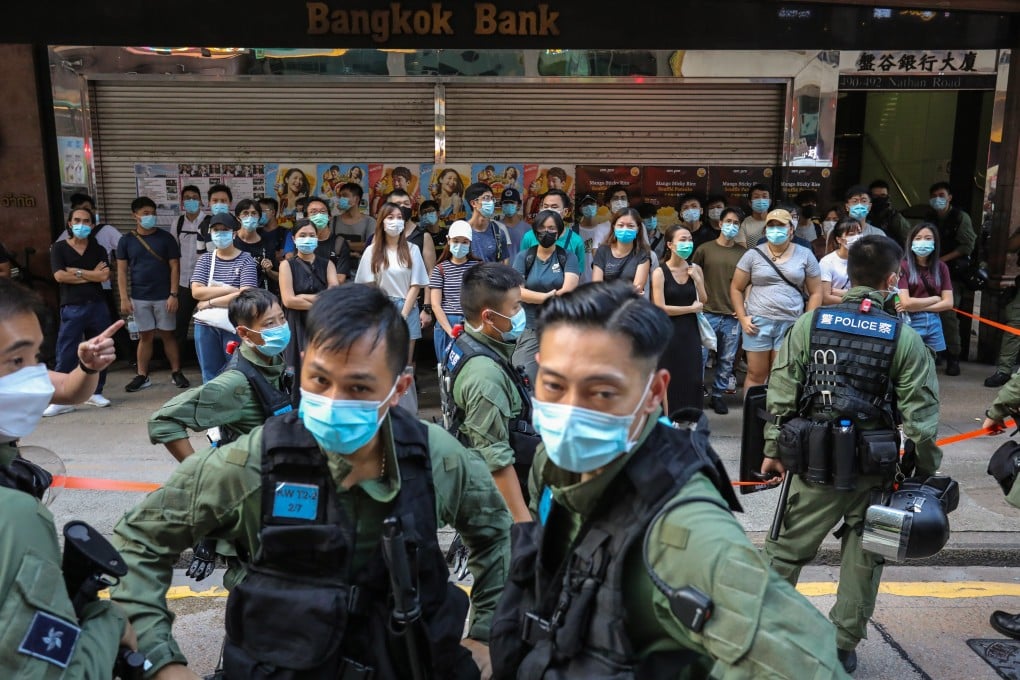Hong Kong, China stocks are dragged down by tech declines after semiconductor firm SMIC plunges on US ban threat
- The Hang Seng Index, which fell 2.9 per cent last week, declines 0.4 per cent
- Improved trade data has limited impact on markets amid doubts about China’s economic recovery, analyst says

The Hong Kong and China stock markets were dragged down by technology stocks on Monday, with top Chinese semiconductor producer SMIC falling by as much as 23 per cent after the Trump administration said last week it might blacklist the company.
A decline in technology stocks led by SMIC, the return of protests to the city’s streets over the weekend and a spillover of risk-off sentiment from Wall Street contributed to the declines.
The markets were on Monday also closely watching whether China’s economic recovery was sustainable. Improved trade data for August released in the morning showed that the total value of exports and imports rose 6 per cent to 2.88 trillion yuan (US$421.7 billion) last month, with exports rising 11.6 per cent to 1.65 trillion yuan and imports dropping 0.5 per cent to 1.23 trillion yuan.
The data was generally in line with market expectations, said Willer Chen, an analyst at Forsyth Barr Asia in Hong Kong. “The market’s interpretation of data coming out of China is tricky,” he said, adding that stocks got only a limited boost on Monday, as there was still some doubt among investors about China’s economic recovery.
Other technology stocks affected by the latest escalation in US-China tensions included China-based Hua Hong Semiconductor, which fell 14.4 per cent, and BYD Electronic, which dropped 7.4 per cent, both in Hong Kong.
“Sentiment is relatively weak … the drop in technology stocks in the US affected the investment sentiment for such stocks in Hong Kong and China, which were further pressured by the Trump administration’s hostile actions ahead of the [US presidential] elections” in November, said Ernie Hon, head of research at Essence International Securities in Hong Kong.